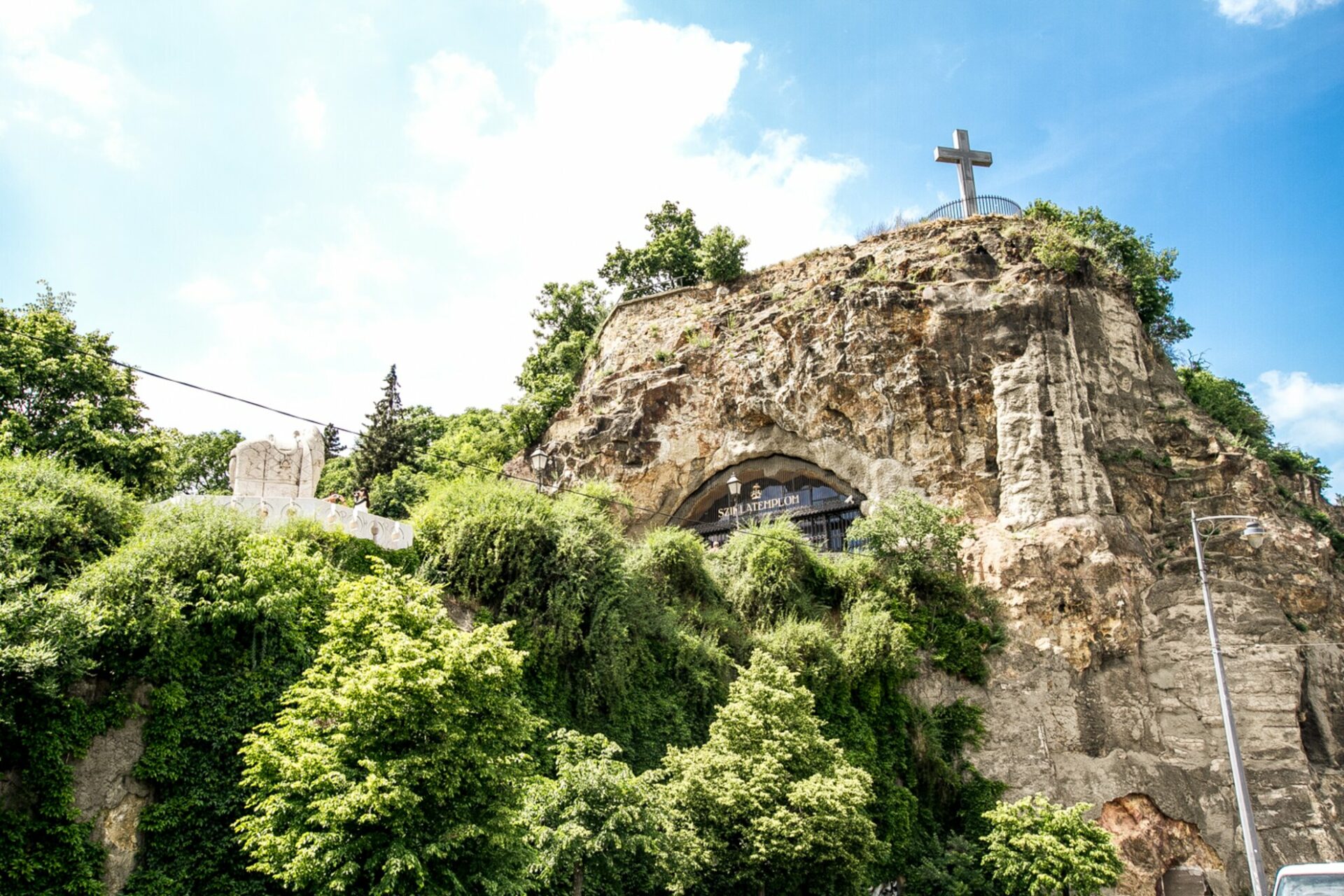
Top 8 things to see on Gellért Hill
Gellért Hill is one of Budapest’s most famous sites with lots to see, so be sure to check out these top 8 sights when you’re there.
O
C
Did you know that you can go for a hike without leaving Budapest’s downtown area? If you stroll along the river, go on a hop-on hop-off bus tour, or take a boat ride on the Danube, you’ll notice a hill sharply rising up over the city, topped by a citadel and a statue of a lady holding a palm leaf. This is Gellért Hill, named after a Venetian bishop who was martyred by the local pagans he tried to convert, who legend has it threw him down the hill inside a barrel full of spikes. Fortunately, your visit to Gellért Hill will be more pleasant than the bishops, as you’ll find green leafy parks, statues, waterfalls, cave churches, and some of the best views over Budapest!
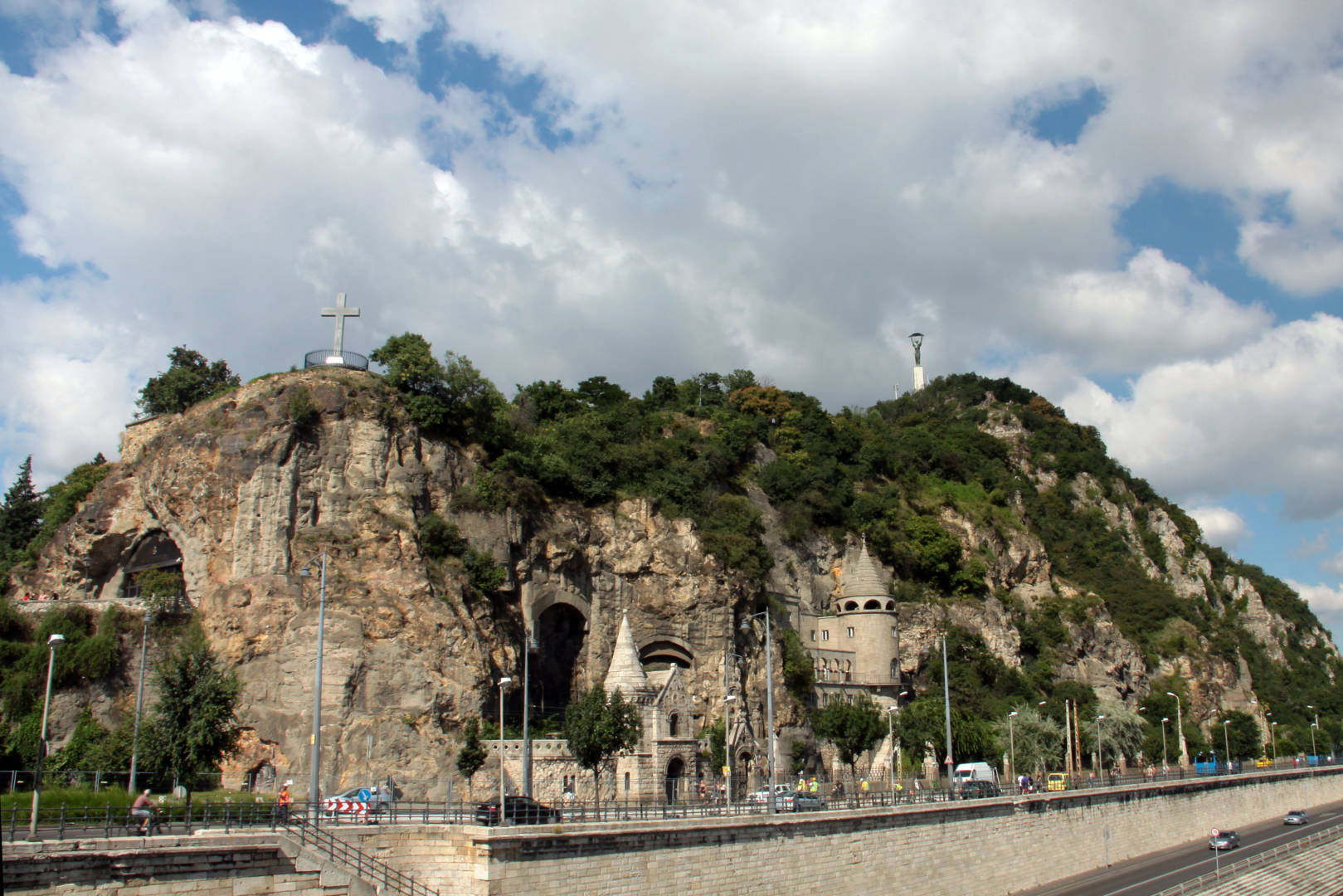
The Citadel
One of the top sites of Gellért Hill is the Citadel. The Habsburgs built the Citadel after the War of Independence in 1848-49 (and facing the city, rather than away from it as a defensive fortress would), but by the time it was built in 1854 had become obsolete. There are plans to renovate the Citadel and turn it into a museum and cultural spot, so stay tuned! To get here, just hike up to the top of the hill (if you’re going up, you’re doing it right), but you can also take the 27 Bus from Móricz Zsigmond körtér to Búsoló Juhász (Citadella) stop and walk up from here.
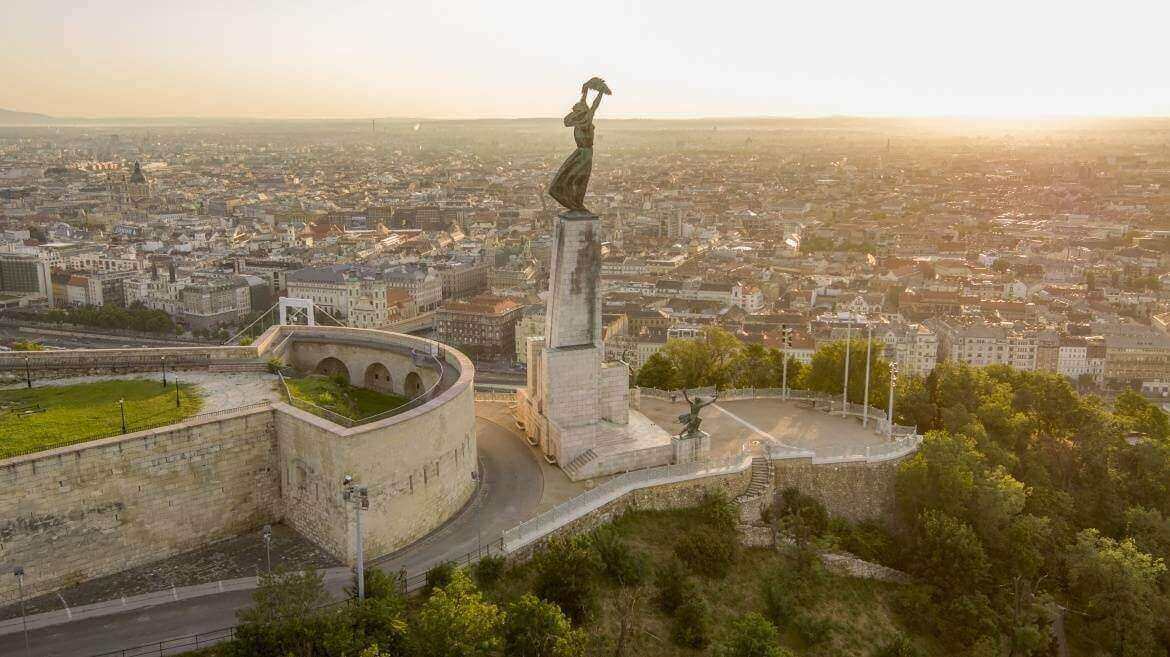
The Liberty Statue
You can spot Budapest’s Statue of Liberty or Liberty Statue from most points of the city. Not to be mistaken for the one in New York, this bronze statue was erected in 1947 in remembrance of the Soviet liberation of Hungary from occupation by Nazi Germany. While most statues from the Communist Period had been removed to Memento Park, the inscription on the statue was changed to remove any reference to the Soviets and the Russian language version was erased in 1989, following the fall of Communism. You’ll find the statue on the southern end of the Citadel, and it’s worth coming out here to enjoy the wonderful views over this part of the city.
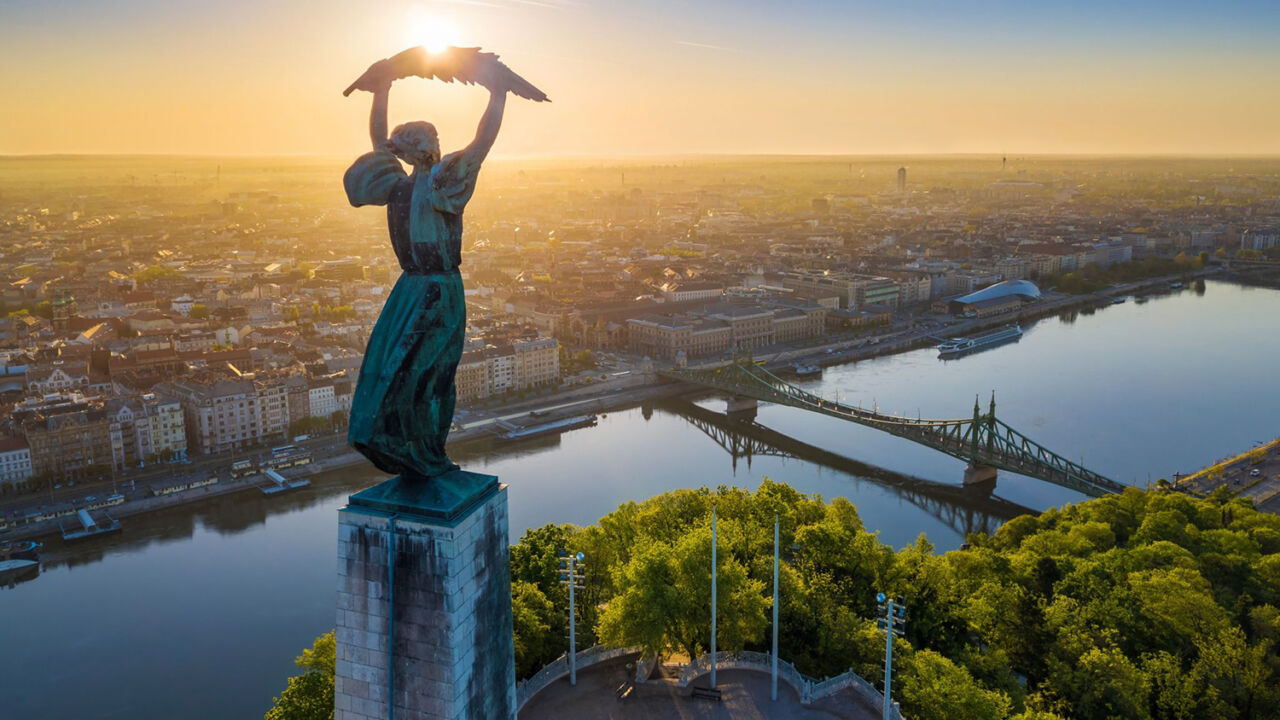
St. Gellért Statue and Waterfall
If you cross over from Elizabeth Bridge, you’ll notice a waterfall cascading between the stairs leading up. This is an especially scenic way to get up the hill, so follow the stairs up till you reach the colonnade surrounding the statue of St. Gellért for a wonderful view over the bridge and river. The statue commemorates the saint, an Italian missionary invited to Hungary by King Stephen to convert the pagan Magyars, who resisted conversion and threw the bishop to his death in 1046.
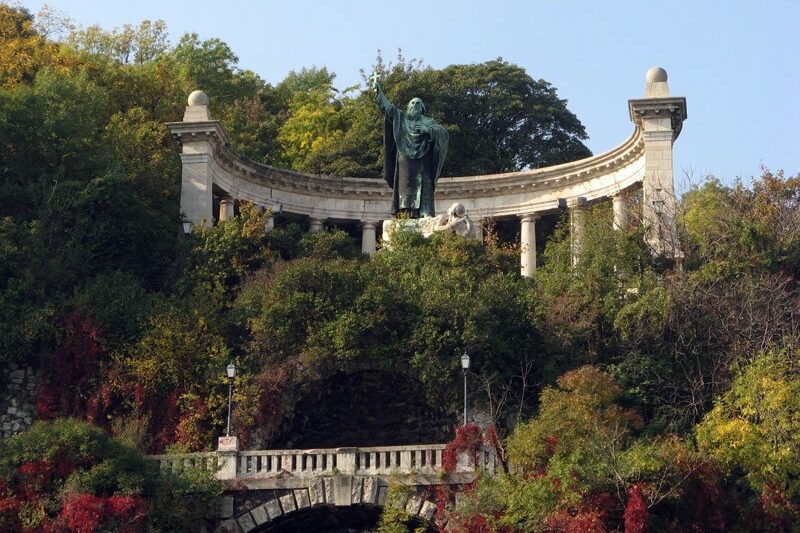
View of the St. Gellert Statue
The Cave Church
At the base of Gellért Hill, opposite the famous Gellért Thermal Baths, you’ll notice a huge entrance leading into the rock face. This cave church was once the home of a hermit monk, and then became a church run by the Pauline Monks. Under Communism, the cave was sealed off and the monks imprisoned, but today it’s back to its former glory. You can visit the church (open 9:30am-7:30pm Mon-Sat, 600 HUF), which is set in a natural cave and worth a visit if you’re into quirky sights.

The Cross and the Almond Tree
Just above the church, you’ll notice a large cross. Make sure you stop here on your hike to or from the Citadel for amazing views over Liberty Bridge and the Danube. But, if you come to Budapest in March, you’ll want to come when the almond tree is in full bloom. It becomes one of Budapest’s most instagramable spots, so come early in the morning if you want to avoid the crowd.
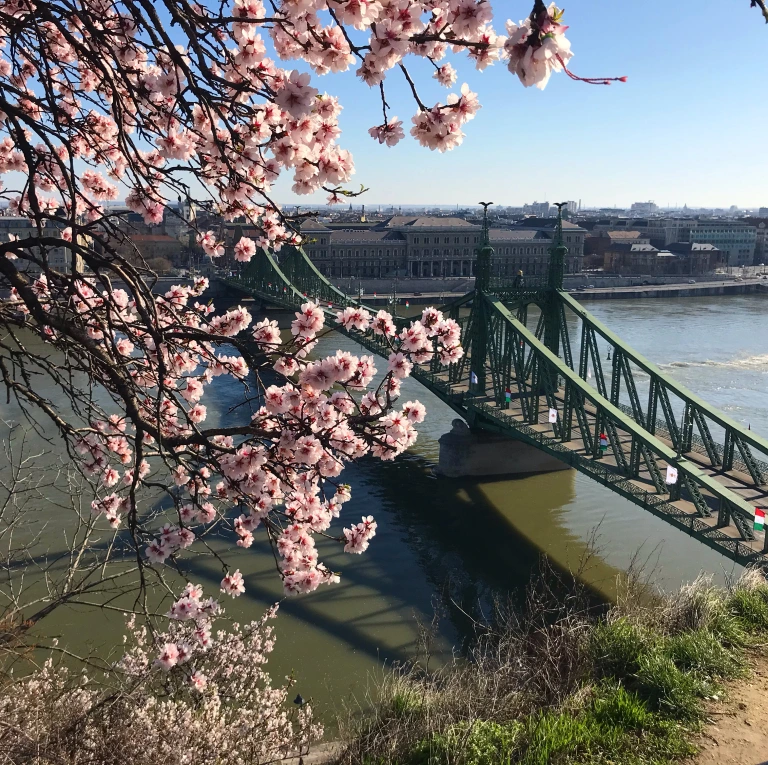
Jubileumi Park
This hidden park on the south-western side of the hill, dips just below the Citadel. You’ll find curious sculptures, like the three amphorae, making it a scenic spot for a picnic. It’s especially lovely in the spring when the cherry blossoms are out.
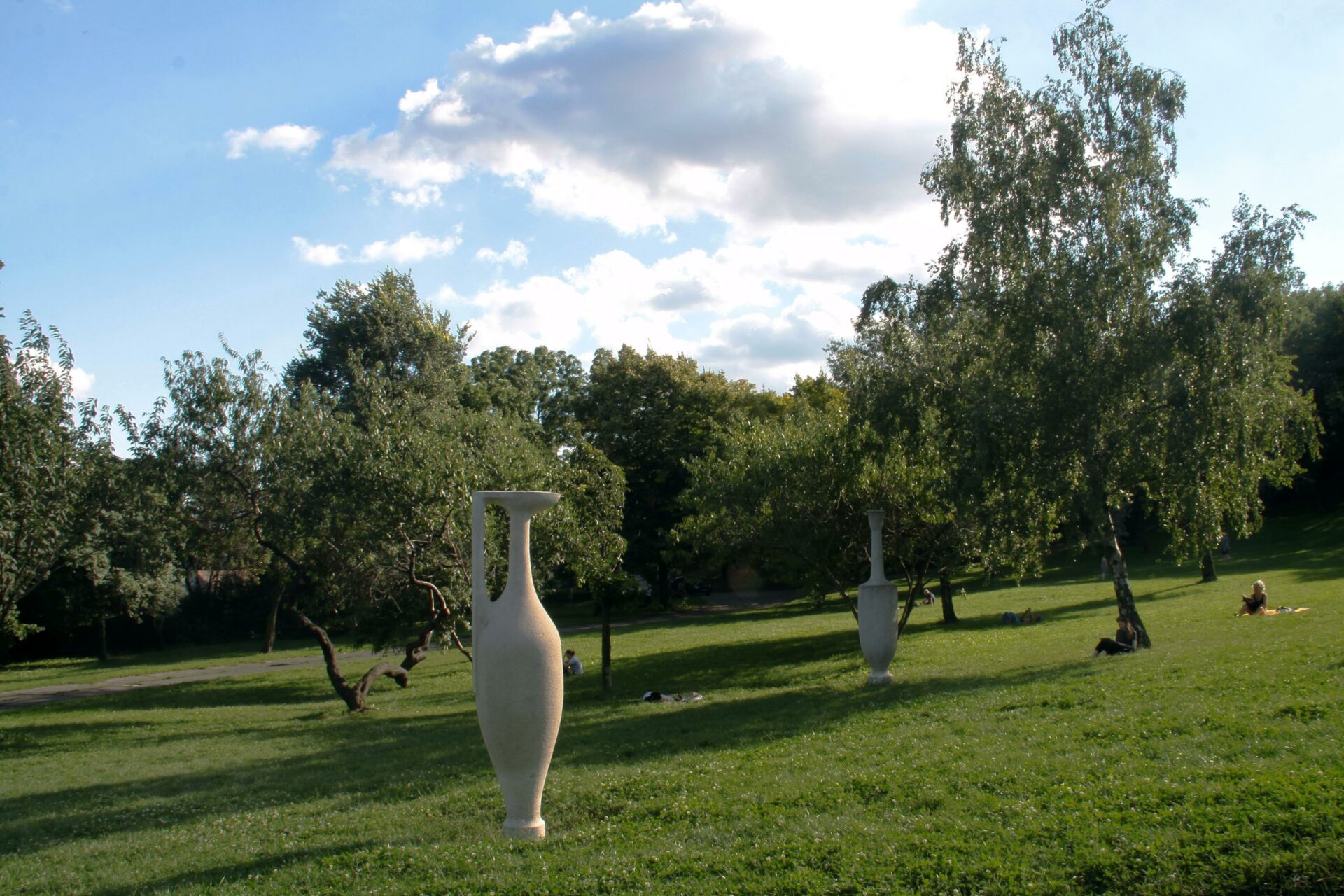
Citadel Lookout
If you’re walking up the road from the Citadel bus stop, make sure you look to your left for the lookout before you reach the Citadel. This spot is famous for its stunning view overlooking Buda Castle, the Chain Bridge, and the Hungarian Parliament.
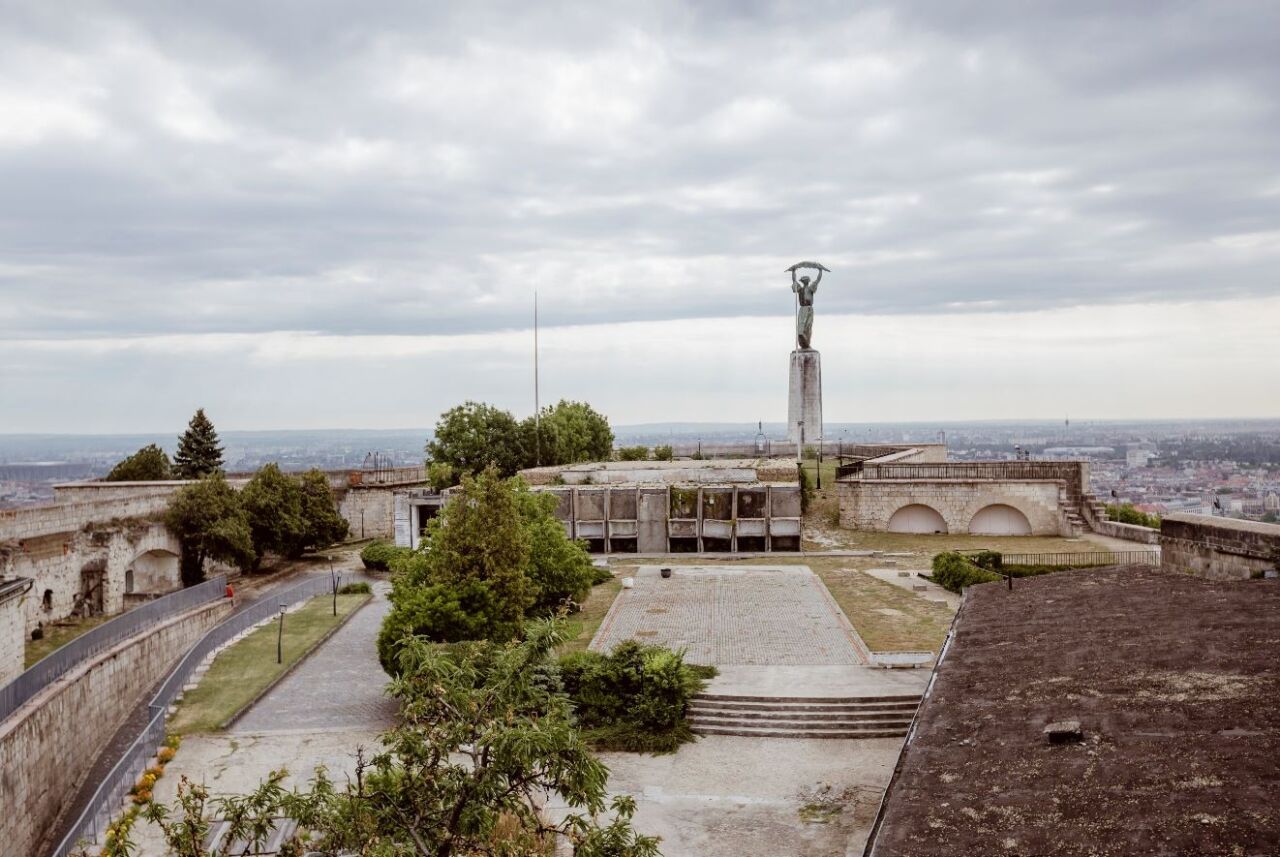
Philosophers’ Garden
This hidden park lies on the northern slopes of the hill and is a popular spot for picnics and all kinds of outdoor activities. Come on the weekend, and you’ll spot a variety of curious groups from yoga and tai chi to drum circles and even medieval sword fighting. The highlight of the park is the collection of statues representing various “philosophers” from different religions, like Abraham, Jesus, and Lao Tsu. It also has a beautiful view of the city.
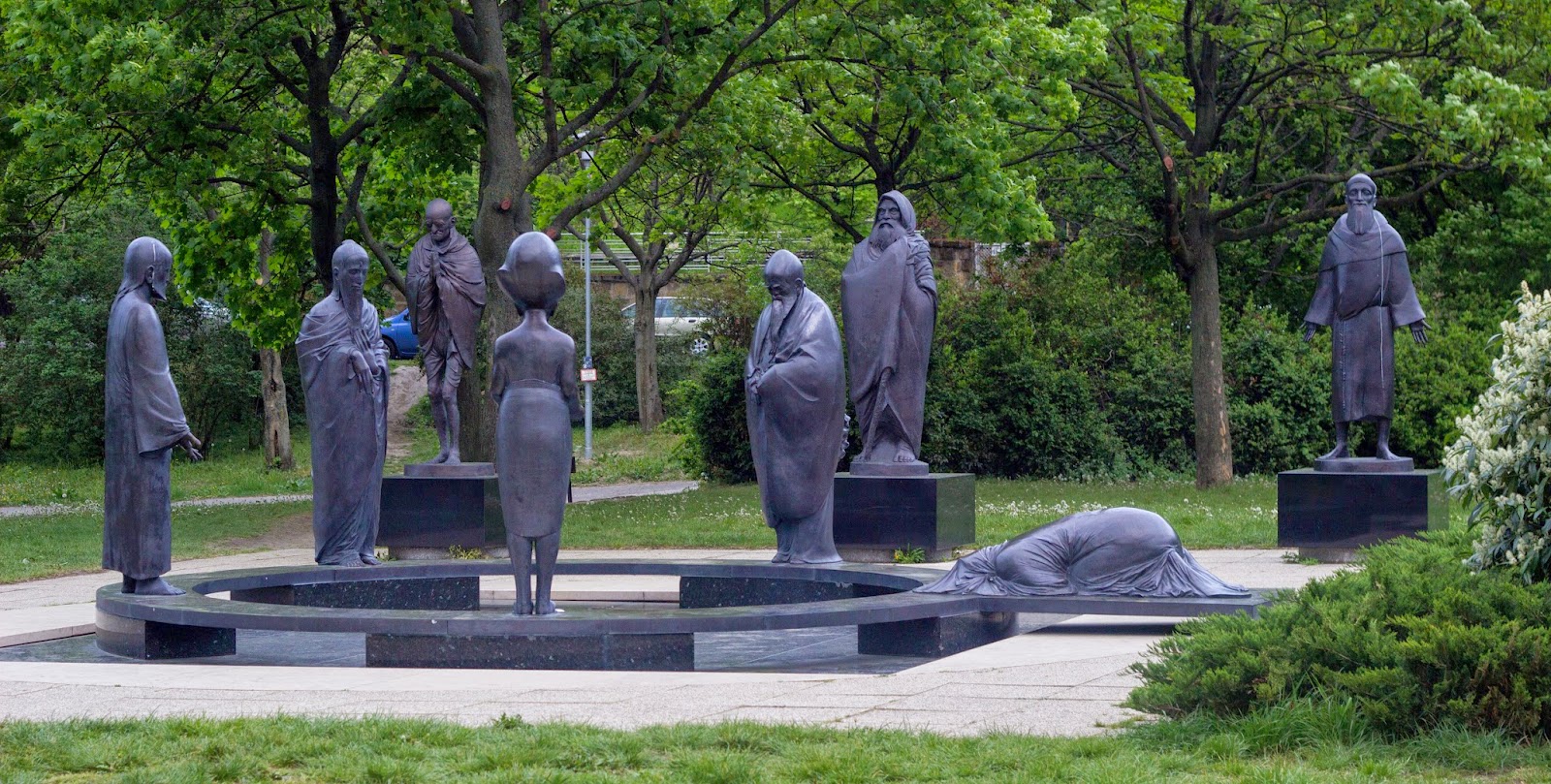
More parks for you to discover in Budapest
If you like being close to nature even in a big city, you’ll be glad to know that Gellért Hill isn’t the only urban green area Budapest has to offer. In fact, the Hungarian capital boasts a number of large parks close to or easily accessible from the city center, where locals and tourists can get a break from the big city life. Among the most popular ones are Margitsziget (Margaret Island), a lively island located between Buda and Pest in the northern central part of town; Városliget (City Park), which is a huge park housing the famous Széchenyi Thermal Bath, the Budapest Zoo, and more; and Erzsébet tér, the cultural and party center of downtown Budapest with an impressive bar and club per square meter ratio. Oh, and before we forget, although it’s undeniably further out than the so-far mentioned places, Óbudai-sziget is still definitely worth making the trip once a year, as it’s hosted one of the biggest musical and cultural events of Europe, Sziget Festival, for roughly two decades.
In addition, we’ve also collected a few less prominent parks and places, in case you want to do some exploring off the beaten path.
Q & A
- What is at the top of Gellért Hill?
- You’ll find the Citadel and the Liberty Statue at the top of Gellért Hill, as well as amazing look out points over Budapest.
- Who once lived in the Gellért Hill cave?
- Legend has it St. Ivan, a hermit who believed the muddy lake next to the cave (where today’s famous Gellért Thermal Baths are located) held healing properties, once lived here. In the 19th century, a poor family built a house in the entrance before a group of Pauline monks set up the church and monastery on site.
- Is Gellért Hill Free?
- Yes, hiking Gellért Hill and visiting most of the sites is free, except for the cave church.
Related Articles
-

Your ultimate itinerary to exploring Budapest in 1, 2 or 3 days
-

Find the best apartment for rent in Budapest
-

Budapest in January: What to Expect in Winter
-

The 5 coolest boutique hotels in Budapest
-

5 clubs you can’t miss when visiting Budapest
-

But first, breakfast – the 5 best brunch places in Budapest




Your experience is important.
Anything you have not found?
Ask a Question
Please log in to write a review.
There is no review yet.